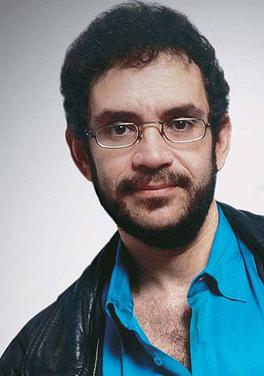
Renato Russo was a Brazilian musician. He was the lead singer of the Brazilian pop rock band Legião Urbana. A Brazilian film depicting his life and career was released in 2013, called Somos Tão Jovens .

Legião Urbana is the self-titled debut album by Brazilian rock band Legião Urbana. It was released on 1 January 1985.
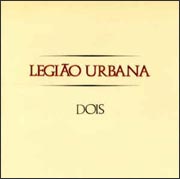
Dois (transl. Two) is the second studio album by Brazilian rock band Legião Urbana. It was released in July 1986 and produced by Mayrton Bahia, which was at that time assigned by EMI-Odeon to produce the label's newcomers. The booklet has a picture of a couple hugging each other and photographed from behind; it was taken by Ico Ouro Preto, former guitarist turned-photographer of the band.

Que País É Este, subtitled 1978/1987, is the third studio album by Brazilian rock band Legião Urbana, released in 1987. The album booklet features a cartoon by drummer Marcelo Bonfá depicting the constant guitarist changes that the band went through until they hired Dado Villa-Lobos.
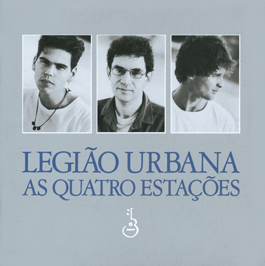
As Quatro Estações is the fourth studio album by the Brazilian rock band Legião Urbana. It was released on October 26, 1989. It is Legião Urbana's first release without bassist Renato Rocha, who was fired from the band prior to the album's recording sessions due to his lack of commitment to the group.

A Tempestade ou O Livro dos Dias is the seventh studio album by Brazilian rock band Legião Urbana. It was released on September 20, 1996, and it is the last Legião Urbana album released in vocalist, acoustic guitarist and keyboardist Renato Russo's lifetime; he would die three weeks later.

Acústico MTV is the first live album by Brazilian band Legião Urbana. It was certified Diamond by ABPD, with more than 500,000 copies sold, and eventually reached the milestone of over 2 million copies sold.

Uma Outra Estação is the eighth and final studio album by Brazilian rock band Legião Urbana. Released in July 1997, one year after Renato Russo's death, it sold over 250,000 copies and received a Platinum Certification by Pro-Música Brasil.

Como É Que Se Diz Eu te Amo is the second live album by Brazilian rock band Legião Urbana, released in 2001. It is the fourth posthumous album by the band after Renato Russo's death in 1996.

As Quatro Estações ao Vivo is the third live album by Brazilian rock band Legião Urbana, released in 2004. It is the fifth posthumous album by the band following vocalist, acoustic guitarist and keyboardist Renato Russo's death in 1996.

Mais do Mesmo is the second compilation album by Brazilian rock band Legião Urbana. It was released in 1998, two years after vocalist, acoustic guitarist and keyboardist Renato Russo's death and the subsequent end of the band. All songs were extracted from all eight albums of the group, under Marcelo Bonfá's and Dado Villa-Lobos' choices. In Brazil, over a million copis were sold and the album was subsequently certified Diamond by ABPD.
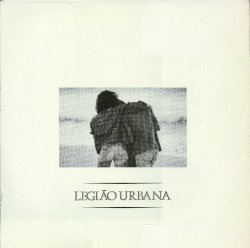
"Eduardo e Mônica" is a song from Brazilian rock band Legião Urbana's 1986 album Dois, released as promo single. It tells a romantic story centered on a couple formed by the 16-year-old Eduardo and the older college student Mônica, who are very different from each other.
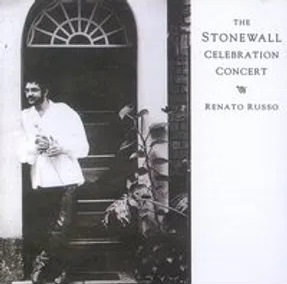
The Stonewall Celebration Concert is the debut studio album by Brazilian singer Renato Russo, released in 1994. The album had a sale of 250,000 copies in the first year of its release. It was one of the first Brazilian albums to be entirely recorded with computers. and it sees Russo covering English-language songs by Madonna, Bob Dylan, Nick Drake, Billy Joel, among others.
"Índios" is a song composed by Renato Russo, released in 1986 on the Dois album by Legião Urbana and also released as the third single from the album in December the same year. A live version was also released in 2001 as a single from the live album Como é Que Se Diz Eu te Amo.
"Monte Castelo" is a song by Brazilian rock band Legião Urbana, released on As Quatro Estações album. Written by vocalist and acoustic guitarist Renato Russo, the song brings verses by Portuguese poet Luís de Camões and sections of the Bible.

Legião Urbana e Paralamas Juntos is a live album by Brazilian rock bands Legião Urbana and Os Paralamas do Sucesso, recorded on 3 September 1988 at Teatro Fênix during a TV special by Rede Globo but only released in 2009.

Equilibrio Distante is the second solo album by Brazilian singer Renato Russo, released in December 1995. It consists of covers of Italian songs originally released by musicians from that country. The album came after a troubled period for Russo, who was struggling with depression at that time, and its recording took nine months. It sold 200 thousand copies little after its release.

Presente is the fourth solo album by Brazilian singer-songwriter Renato Russo, and his second posthumous one, released in March 2003, seven years after his death.
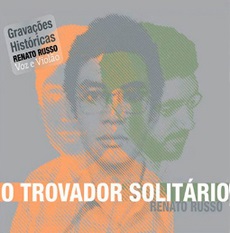
O Trovador Solitário is a compilation by Brazilian singer-songwriter Renato Russo released on 13 July 2008 so as to coincide with World Rock Day. It was created with K7 tapes that he registered during his "O Trovator Solitário" era, in which he performed alone with his acoustic guitar in the 1980s, between the end of Aborto Elétrico and the founding of Legião Urbana.
"Mais Uma Vez" is a song composed and sung by Brazilian musicians Renato Russo and Flávio Venturini in 1986. It was released as the first single of Sete, a 1987 album by Venturini's band 14 Bis.

















